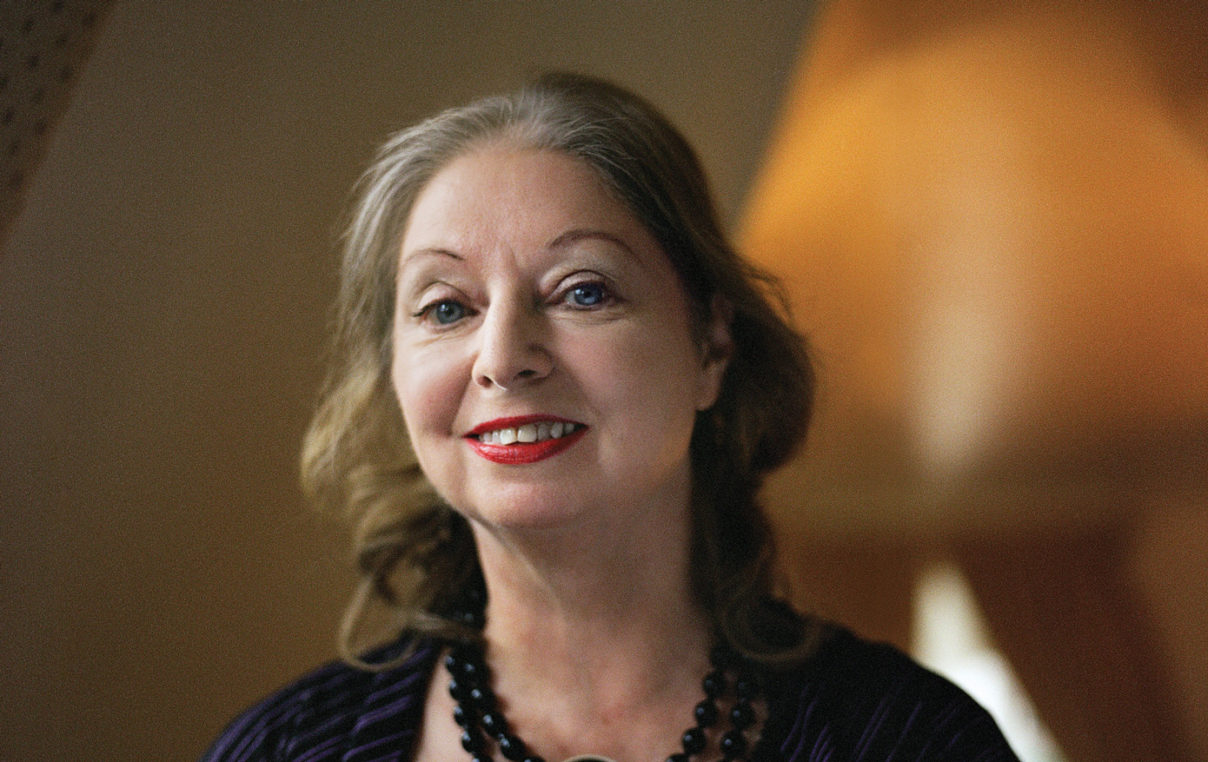The best-selling author of the Wolf Hall trilogy has died aged 70
“Gerald [McEwan, Mantel’s geologist husband] and I are moving to West Cork so I am beginning to fill the gaps in my knowledge. This area is thick with history, from pre-history onwards, and I am looking forward to reading more. It’s the right time for us to move. This year we are both 70, so it is now or never! This is where I will fire up my new projects.” These were the words of author Hilary Mantel when we interviewed her for “Bedside Table”, in our June issue. Sadly, although a move to West Cork was on the cards, it was not to be.
Mantel died on Thursday, September 22 at hospital in Exeter. A statement released by publishers HarperCollins reads: “It is with great sadness that AM Heath and HarperCollins announce that bestselling author Dame Hilary Mantel DBE died suddenly yet peacefully yesterday, surrounded by close family and friends, aged 70.
Her death, from a stroke, was confirmed by Bill Hamilton, her long-time literary agent, who paid this tribute: “Her wit, stylistic daring, creative ambition and phenomenal historical insight mark her out as one of the greatest English novelists of this century. She will be greatly missed.” He added, “She had so many great novels ahead of her,” revealing that Mantel had been working on one at the time of her death.
Mantel is most known for Wolf Hall, Bring Up the Bodies and The Mirror and the Light – her trilogy based on the life of Thomas Cromwell and his rise to power in the court of Henry VIII, for which she won the Man Booker Prize twice in addition to Costa Book of the Year. The trilogy sold more than five million copies and has been translated into 41 languages.
Having studied law at the London School of Economics and Sheffield University, Mantel worked as a social worker and lived in Botswana and Saudi Arabia before returning to the UK in the 1980s. She became a film critic for Spectator magazine and contributed to range of publications, while writing fiction. She wrote 17 books as well as the memoir Giving up the Ghost. She was elected as a Fellow of the Royal Society of Literature in 1990 and awarded a damehood in 2014 for services to literature.

Mantel often discussed her modus operandi, “For myself, the only way I know how to make a book is to construct it like a collage: a bit of dialogue here, a scrap of narrative, an isolated description of a common object, an elaborate running metaphor which threads between the sequences and holds different narrative lines together.” It was a formula for success, yet did not necessarily translate to happiness. “Sometimes people ask, ‘Does writing make you happy?’ But I think that’s beside the point. It makes you agitated, and continually in a state where you’re off balance. You seldom feel serene or settled.”
She often sparked controversy – in one short story Mantel imagined the assassination of Margaret Thatcher, while during a lecture at the British Museum in 2013 she likened Catherine, Princess of Wales to Anne Boleyn describing her as “a jointed doll” and “a shop window mannequin on which certain rags are hung.” She later clarified her comments in the feature Royal Bodies in the London Review of Books.
Other insights reveal that Mantel believed, “A novel should be a book of questions, not a book of answers.” She also revealed, “Though I have never thought of myself as a book collector, there are shelves in our house browsed so often, on so many rainy winter nights, that the contents have seeped into me as if by osmosis.” In our June issue she gave some book recommendations.
“I’m reading Unsettled, a book by Rosaleen McDonagh, which I picked up in Kerr’s bookshop in Clonakilty in Co Cork. I was still reading it at 2am in the morning. It is the most extraordinary memoir of a woman, one of 15 children in a Traveller family, who has cerebral palsy. It is a miracle the book came to be written considering the start in life that McDonagh had – being a Traveller, being disabled and with the added complication of being a woman. One of the most heart-breaking sentences in the book describes how, when she was in residential care, they didn’t have many electrically powered wheelchairs, and those they did have were given to the boys. She was not able to move her manual wheelchair because she didn’t have enough power in her hands. I love memoirs and this one caught my eye because of its stunning cover. It was sitting on the Irish history shelf where I had just picked up a book about Kinsale 1601. I’m also reading a lot of contemporary fiction – entries for a competition I’m judging for Mslexia, which is a magazine for women who write, whether beginners or more established. It’s a really excellent magazine with lots of competition and exercises which I find very helpful. That has been keeping me busy!”
Read the rest of Hilary Mantel’s recommendations here.






